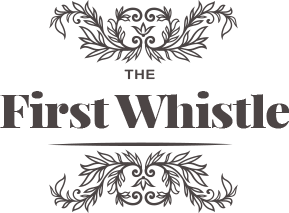We use cookies to make your experience better. To comply with the new e-Privacy directive, we need to ask for your consent to set the cookies. Learn more.
THE FIRST WHISTLE
The London Police were keen to find a better way for the “Bobby on the Beat” to communicate with nearby colleagues when in need of help. Joseph Hudson’s first Police whistle provided the answer. Easily heard over a mile’s distance, 100% reliable, distinctive identifiable sound, attention grabbing and authoritative.




SOUND OF SUCCESS
One year after inventing his first police whistle Joseph Hudson had taken orders for over 250,000 whistles and was employing 50 people in his Buckingham Street factory.


THE FIRST POLICE WHISTLE
The British Bobby had long communicated with his colleagues on the street by swinging his rattle. A standard part of Police equipment of the day it was loud, but it was bulky and cumbersome to use especially in a chase. Its inadequacies were well known but it was all they had.
Scotland Yard advertised, nationally, for suggestions, improvements or new ideas. As so often in history it’s not just the man but the moment. Joseph Hudson was already making and thinking about whistles. The advertisement he saw gave him the opportunity.
Thinking about the kind of sound the Police should have that was attention grabbing but also so different to any other sound of the street that it would be uniquely identified with the Police, Joseph Hudson did what he liked to do when thinking, he played his violin. Having finished his playing, he placed his violin on his table but didn’t quite put it down as he intended. It fell to the floor and it broke. As it broke it made a dying, discordant note. Anyone who has ever dropped or broken a bottle, a glass or a plate will have experienced the nerve jangling effect that such a happening creates. Joseph Hudson noticed the effect the sound of his breaking violin had on him and knew immediately that he had discovered a unique and jarring signal that demanded attention.
Hoping to persuade Scotland Yard that he had the answer to their problem he submitted his whistle which was tested in London and found to be the best and most effective replacement for the rattle. His police whistle was approved and 21,000 were ordered in several batches. Being situated in Birmingham’s famous jewellery quarter he was surrounded by tradesmen who’s aid he could enlist. Birmingham was known as the workshop of the World which is certainly what it became in the World of whistles. It would be nice to think, given that he was something of a visionary, that he at least glimpsed the future he was making and that the company he had started would go on to produce over 450 million whistles and still be whistling all over the World nearly 150 years later.


